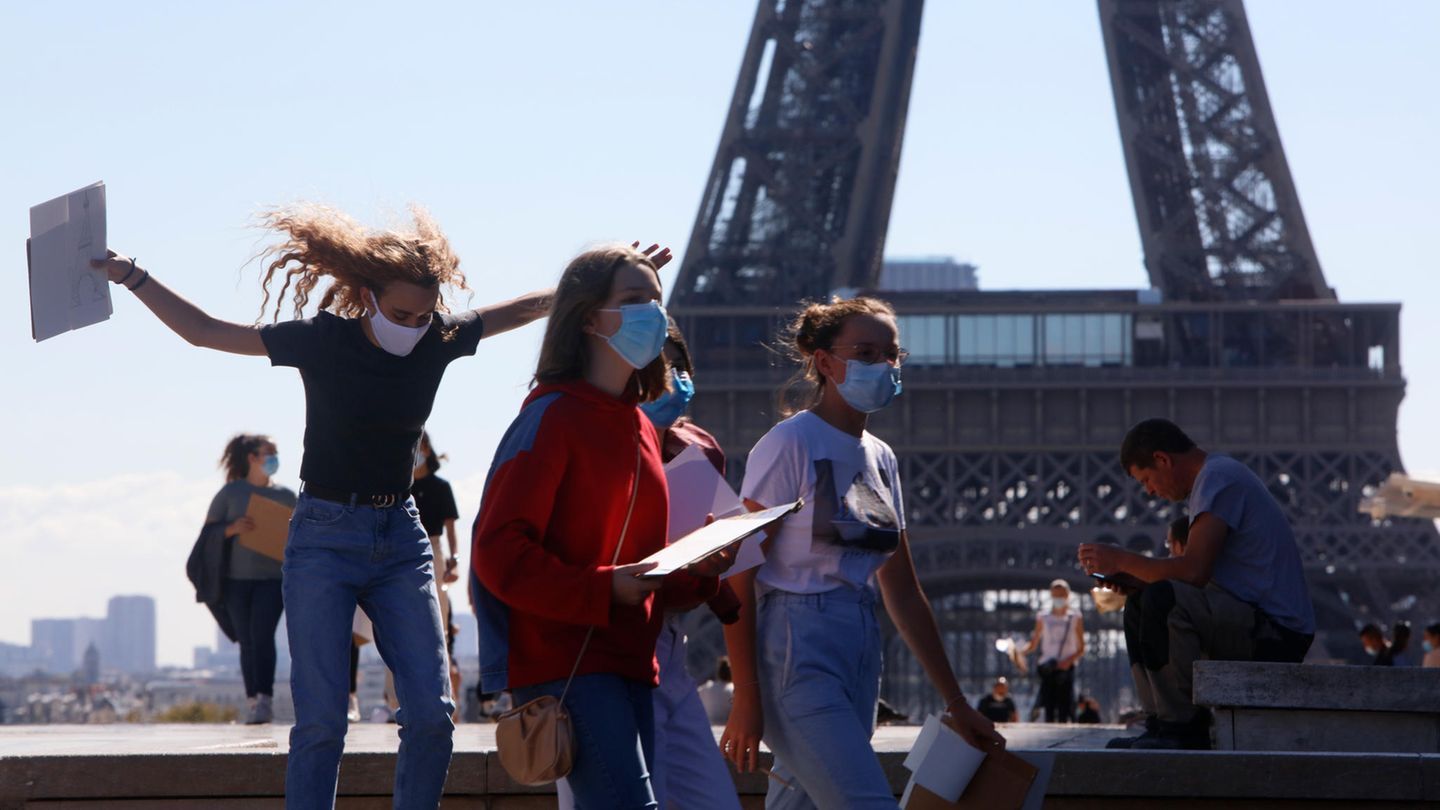On Sunday, most of the corona measures will end in many federal states despite record incidences. In other European countries, the restrictions were lifted a few weeks ago. An overview.
In the past few weeks, there have been new highs in new corona infections in Germany. Nevertheless, according to the will of the federal government, most of the corona rules should expire this Saturday. With a new legal framework, only a few general requirements for masks and tests in facilities for vulnerable groups should remain in place from Sunday. In other European countries, most of the restrictions have already been lifted.
Austria
In view of the omicron wave, Austria has completely overturned its corona policy, which is unique in Europe, and is planning further easing despite the record number of infections. The lockdown for the unvaccinated is history, and the planned general obligation to vaccinate was recently suspended. Almost all restrictions were lifted at the beginning of March. Since then it has been possible to celebrate in bars again. But epidemiologists are concerned. Health Minister Johannes Rauch recently announced that free mass tests will soon be restricted and quarantine rules relaxed.
Switzerland
It feels “almost like it used to be” for people in Switzerland since most of the corona measures fell in mid-February. The mouth and nose cover only has to be worn in public transport. The bid should also fall at the end of March. The government could delay this because of the increasing number of cases. Public life and personal freedoms were significantly less restricted here than elsewhere due to the entire pandemic. With success, according to the University of St. Gallen. Apart from Norway, no other country came through the pandemic so well. After an evaluation of the number of cases, excess mortality, restrictions, inflation and economic growth, Germany was ranked 25th and Austria 34th.
Scandinavia
First Denmark, then Sweden, Norway, Iceland and Finland – all of Scandinavia has gradually lifted its respective restrictions. There are two main reasons for this: the high number of vaccinations and the milder course of the disease after omicron infections. Life north of the German-Danish border is practically free of restrictions from the Corona point of view, in the center of Copenhagen, for example, there is hardly anything to indicate the ongoing pandemic. In hospitals and nursing homes, however, there are still isolated recommendations for caution. After peaking in February, the incidence has fallen sharply in much of the north. However, in many places there is now less testing than before.
Great Britain
The credo in Great Britain is also “Living with Covid”: Public life runs without restrictions. At first glance, one might forget that the pandemic is not over yet. Even the royals are back in Westminster Abbey with 1,500 people without masks and distance. In Parliament, MPs jostle for seats, just like in pubs. Not even those who have been proven to be infected have to isolate themselves. The government is boasting about its risky course in the omicron wave. However, the infection curve is going up again, and the number of Covid patients in hospitals is growing. At the same time, the country is flying blind: the previously freely available rapid tests will be subject to a fee from April.
Czech Republic
In the Czech Republic, almost all corona measures have also gradually disappeared, including the 2G rule in gastronomy. An FFP2 mask must still be worn on buses and trains as well as in health and care facilities, but not in retail. Many had only half-heartedly followed the rules in the end anyway. The seven-day incidence per 100,000 inhabitants has leveled off at around 500. The Ukraine war has almost completely pushed the pandemic out of the headlines. Numerous vaccination centers have been closed due to a lack of inflow. EU citizens must register before entering the country and provide proof of vaccination or a test. Excluded are short stays of less than 24 hours.
France
Since Monday, people in France have often heard: “Finally we can see our faces again!” With a large part of the corona restrictions, the mask requirement at the workplace fell for many employees at the beginning of the week. Those who were only hired during the pandemic often did not even know what colleagues without masks looked like. Public life is largely normalizing, even if some prefer to leave their masks on when shopping – even if they are not obligated to do so. After a strong relaxation, the number of cases is picking up again. No more reaching for your mobile phone at the entrance to a café, cinema or restaurant or before a TGV train journey. The vaccination certificate stored in an app no longer has to be presented constantly.
Croatia
The holiday destination Croatia is hoping for a summer season without too many corona restrictions. The measures on the Adriatic are already mild. For entry beyond transit traffic, proof is required that you have been vaccinated, recovered or tested. There are no restrictions for hotel and restaurant gatherings and events with fewer than 50 participants. Mouth and nose protection must still be worn in public transport, in shops and in hospitals. A 3G certificate is required in the opera, theater or cinema. The number of seats is not limited – “sold out” really means that every seat is taken.
Greece and Cyprus
Traveling to Greece has become easier since Tuesday. Visitors no longer have to fill out a registration form for corona tracking before entering the country. The mask requirement outdoors has fallen. In gastronomy and at events in closed rooms, however, proof of vaccination or recovery must still be shown. Unvaccinated people still need a negative PCR or antigen test upon entry. Cyprus has also made it easier for travellers: those who have been vaccinated no longer have to take a PCR test after their arrival. The vaccination certificate is sufficient. Those who have not been vaccinated must be tested before they travel. Travelers still have to register.
Italy
Italy ends the Corona state of emergency on March 31 and abolishes most of the restrictions. From April onwards, proof of vaccination, recovery or tests will no longer be required in hotels, local public transport and shops. As of May 1st, the certificate called “Greenpass” in Italy will be completely abolished. The quarantine regulations will be almost completely lifted: In future, only those who are infected will have to isolate themselves, and contact persons can leave their homes at any time. With the end of the state of emergency, the government’s expert panel, which had been working on the most important measures during the months of the pandemic, will also be dissolved.
Source: Stern




